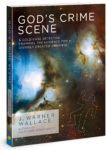
Interestingly, cosmologists have refined their thinking related to the nature of the universe over the past several decades. Early researchers (like Einstein) initially rejected the idea our universe had a beginning at all. For thinkers like Einstein, our universe was the uncaused environment from which stars and planetary systems evolved. Why is everyone so obsessed with identifying an eternal entity and an uncaused, first cause? Because the nature of this first cause will determine which worldview (atheism or theism) is true. For committed atheists, like Carl Sagan, the desire to identify the eternal is deeply metaphysical:
“The Cosmos is everything that ever was, is and will be.”
That’s a rather theological sounding statement, and Sagan intended it to be. For Sagan, the universe (the “Cosmos”) was worthy of worship. In fact, most of us will direct this kind of reverent awe to the first, uncaused cause in any series of causal events leading to our existence. For Vilenkin, the primordial vacuum merits this sort of awe and inspiration. As a theist and a Christian, I have come to place my awe in the uncreated Creator. All of us are in awe of something, and this something typically lies at the beginning of a causal chain. Why is this true? Because each of us intuitively understands something called the Principle of Causality. If you came into a room and observed a ball rolling across the floor, you would naturally look around to see who kicked it. The ball didn’t start moving on its own without the help of someone (or something) to begin its movement. The ball has no ability to move without an initial cause; an initial mover. Scientists recognize this reality and have developed a list of things requiring a cause:
Every effect has a cause
Everything that begins has a cause
Everything that changes has a cause
Everything that is finite has a cause
Everything that is limited has a cause
Even the famous skeptic, David Hume, when questioned about causal relationships such as these, confirmed the necessity of the Principle of Causality:
“I never asserted so absurd a proposition as that anything might arise without a cause.”
Great thinkers from every worldview must wrestle with the Principle of Causality as it relates to the universe, especially given the evidence the universe is not eternally old (we’ll look at some of this evidence tomorrow). If the universe had a beginning, it cannot be the first, uncaused cause. If this is true, we are warranted in trying to identify such an initial cause, as this first, uncaused cause is an object of awe and worship. When we apply the Principle of Causality to the nature of the universe, a classic argument for the existence of God emerges (the “Cosmological Argument”):
(1) The Universe Began to Exist
(Confirmed by the scientific evidence)
(2) Anything That Has a Beginning Must Be Caused By Something Else
(Affirmed by the Principal of Causality)
(3) Therefore, the Universe Must Have a Cause
(Inferred from the Principal of Causality)
(4) The First Cause Must Be Eternal and Uncaused
(Declared by definition)
(5) The Cause is God
(Offered as the most reasonable uncaused first cause)
Great thinkers from every worldview must wrestle with the Principle of Causality as it relates to the universe, especially given the evidence the universe is not eternally old Click To Tweet

J. Warner Wallace is a Dateline featured Cold-Case Detective, Senior Fellow at the Colson Center for Christian Worldview, Adj. Professor of Apologetics at Biola University, author of Cold-Case Christianity, God’s Crime Scene, and Forensic Faith, and creator of the Case Makers Academy for kids.
Comment or Subscribe to J. Warner’s Daily Email
J. Warner Wallace is a Dateline featured cold-case homicide detective, popular national speaker and best-selling author. He continues to consult on cold-case investigations while serving as a Senior Fellow at the Colson Center for Christian Worldview. He is also an Adj. Professor of Christian Apologetics at Talbot School of Theology, Biola University, and a faculty member at Summit Ministries. He holds a BA in Design (from CSULB), an MA in Architecture (from UCLA), and an MA in Theological Studies (from Gateway Seminary).

































Pingback: Science Agrees with the Bible: The Universe Began to Exist | A disciple's study
Pingback: Science Agrees with the Bible: The Universe Began to Exist | Apologetics ForumApologetics Forum
Pingback: Science Agrees with the Bible: The Universe Began to Exist | Cold Case Christianity
Pingback: Is There a Way to Avoid a Universe With a Beginning?
Pingback: Is There a Way to Avoid a Universe With a Beginning? | Cold Case Christianity